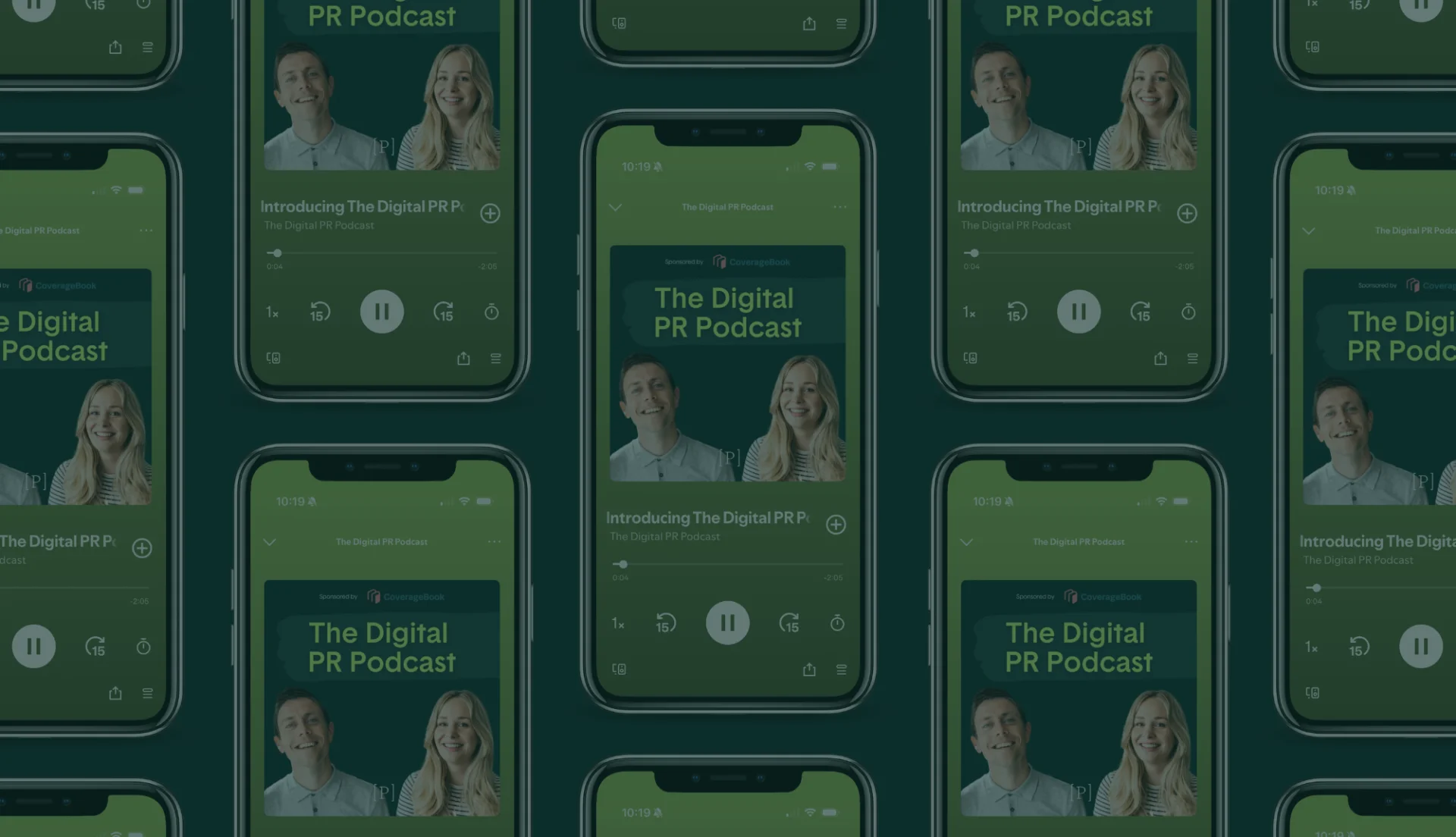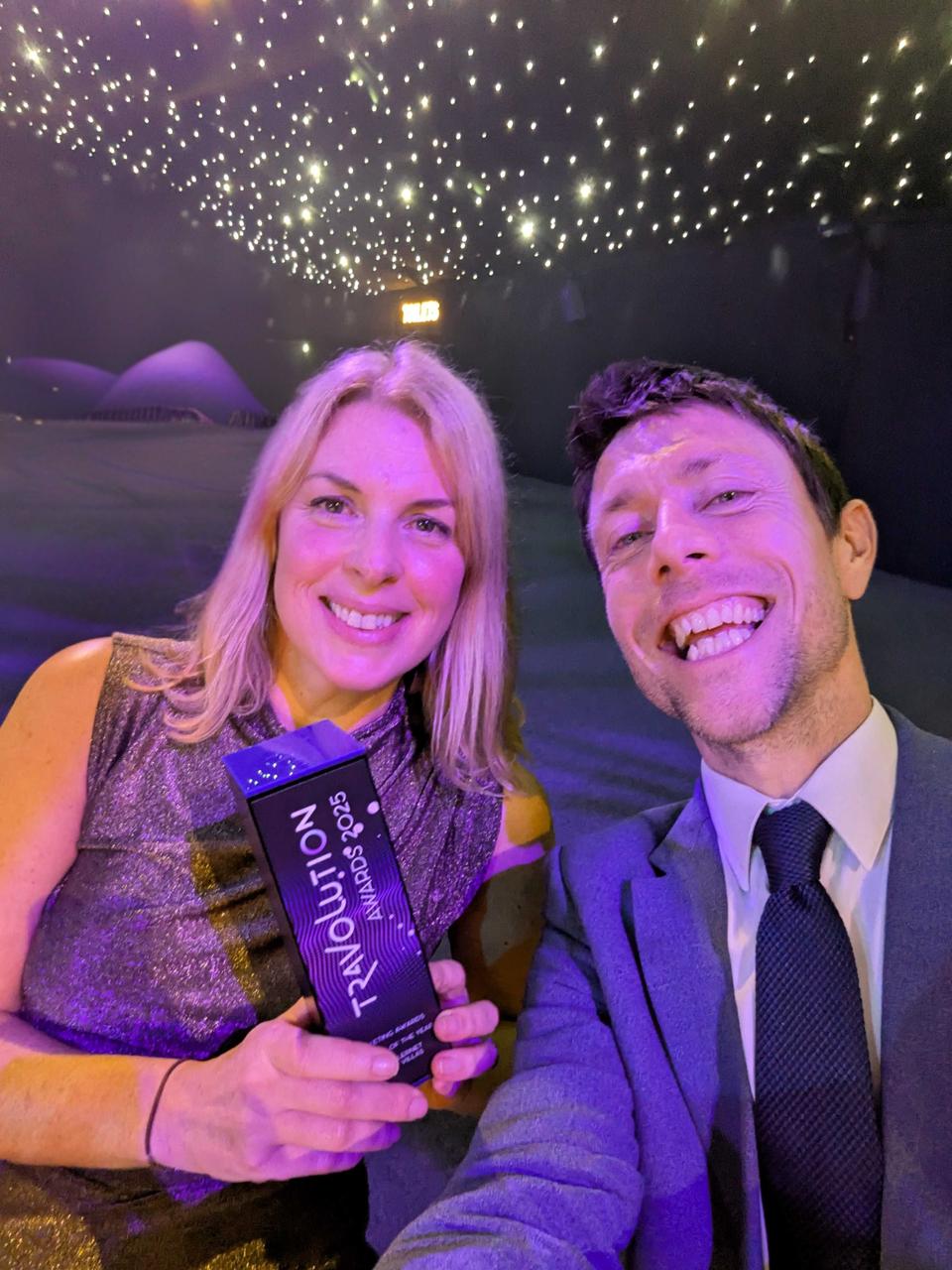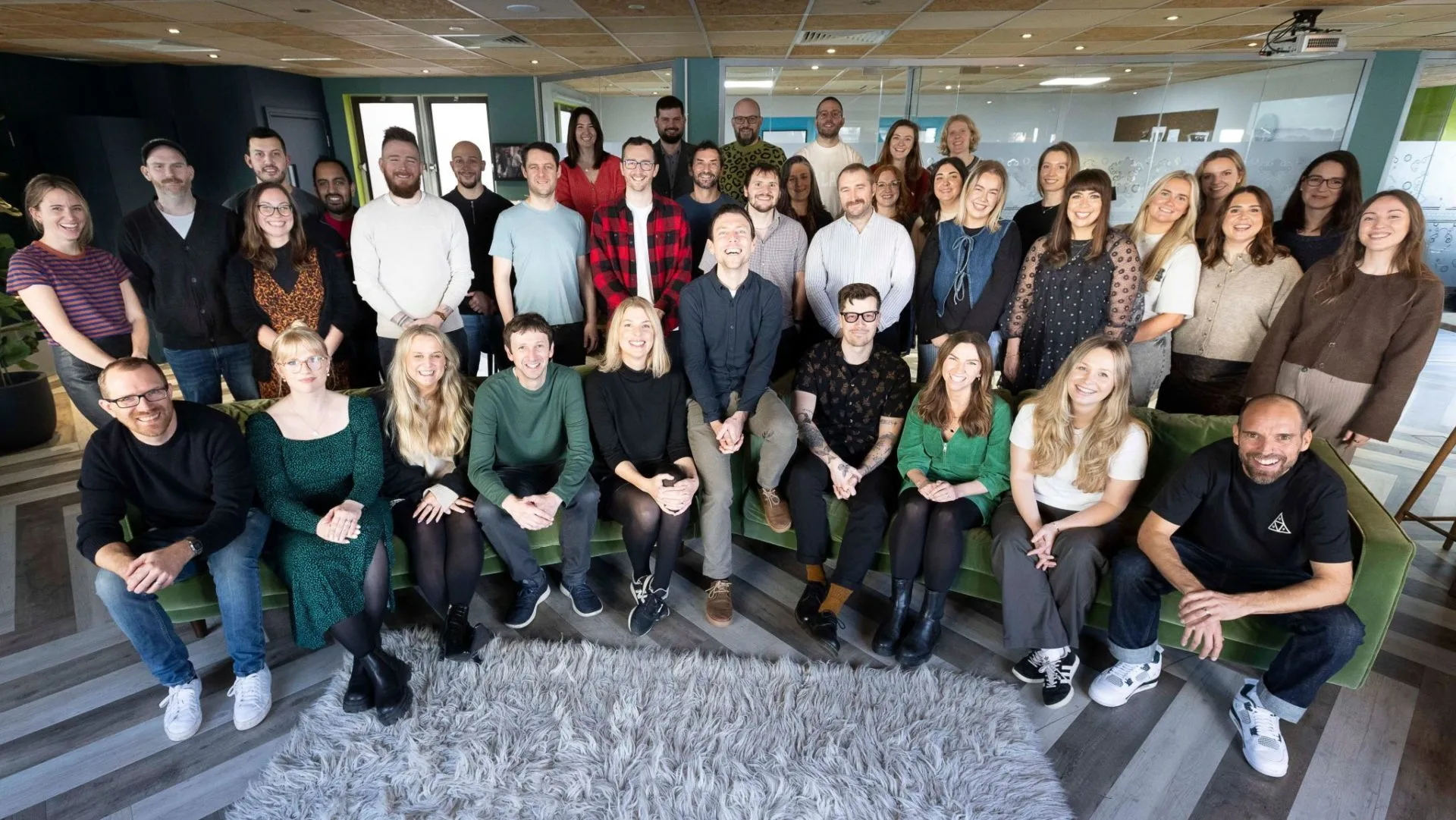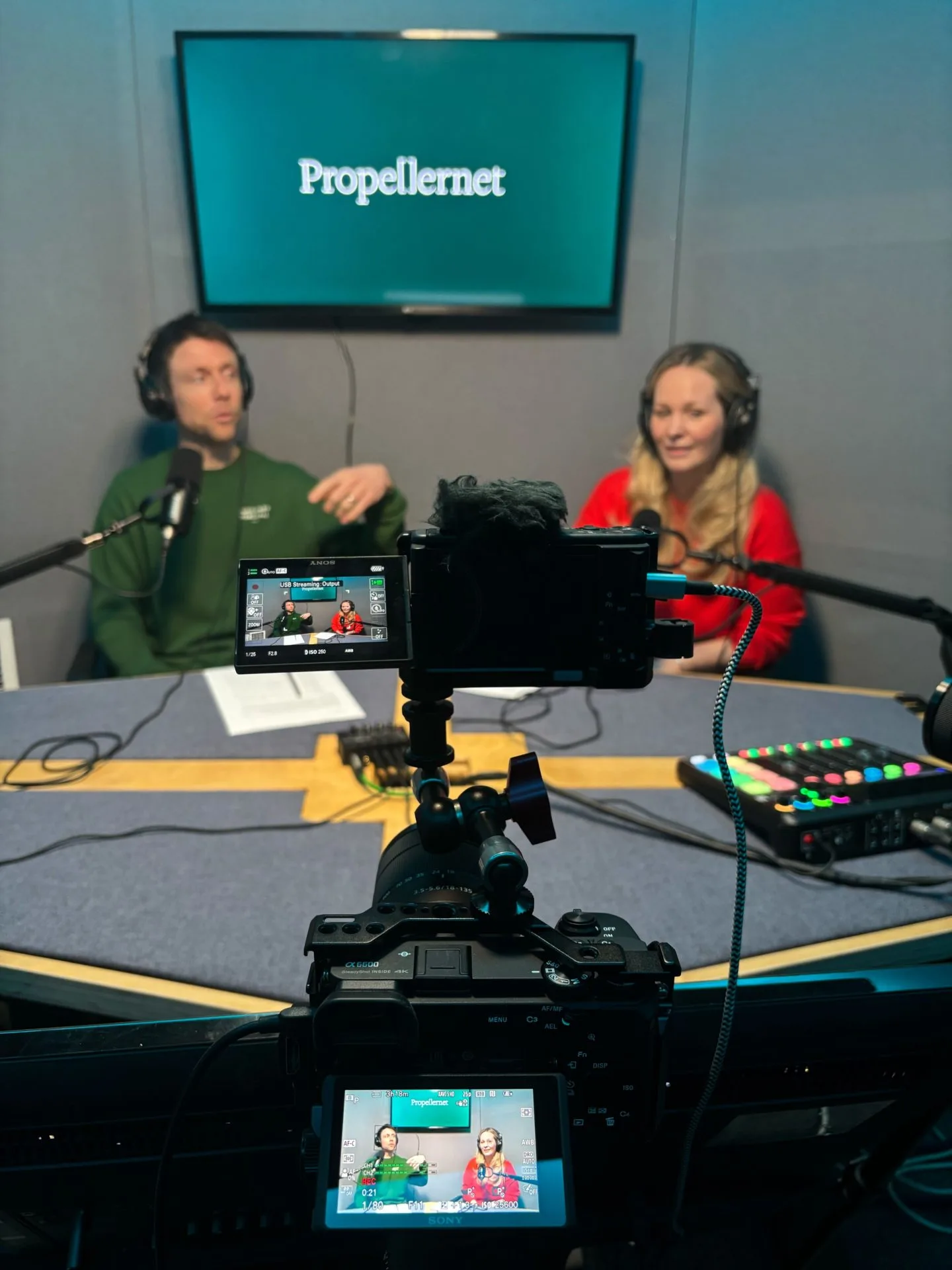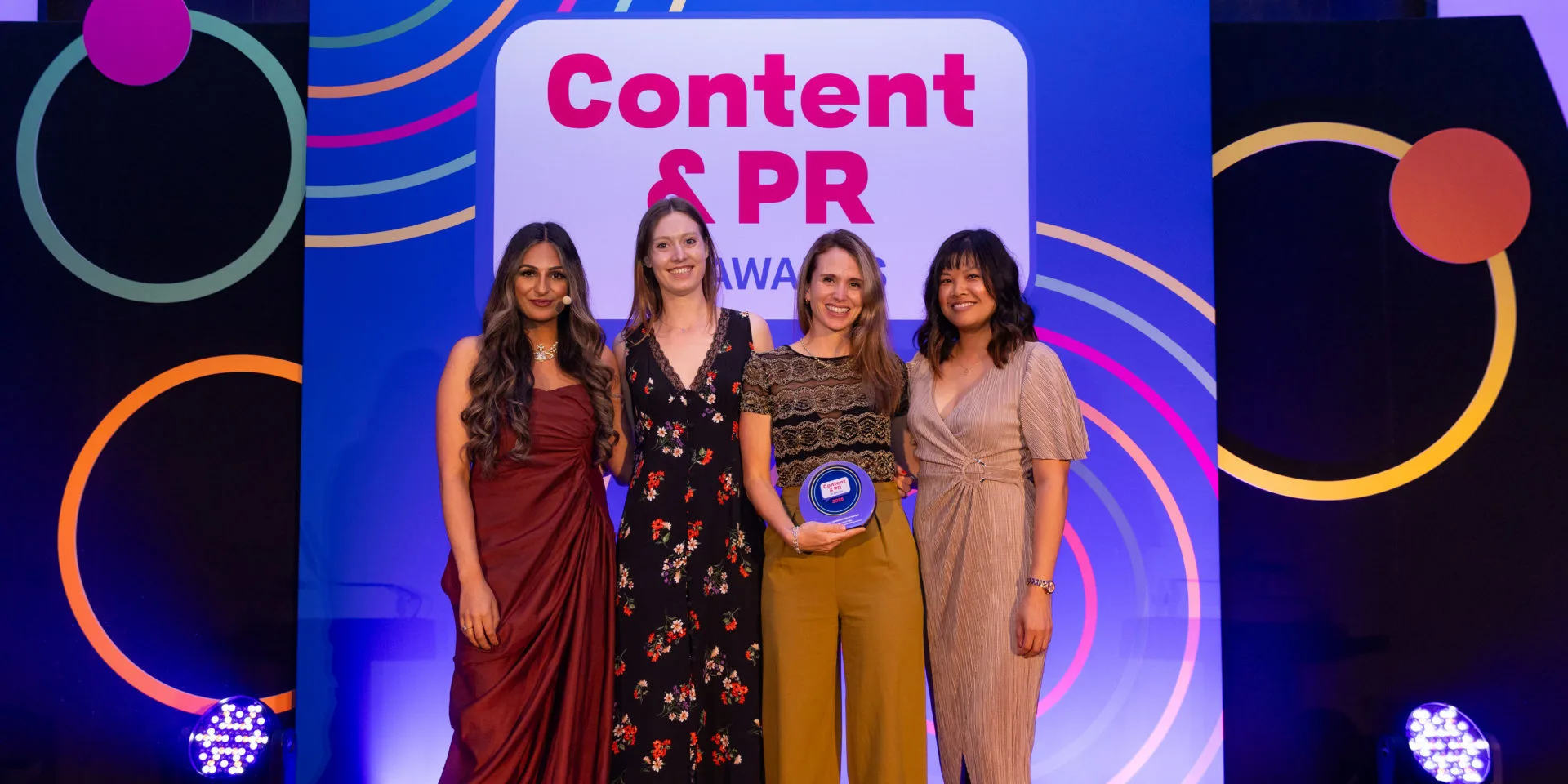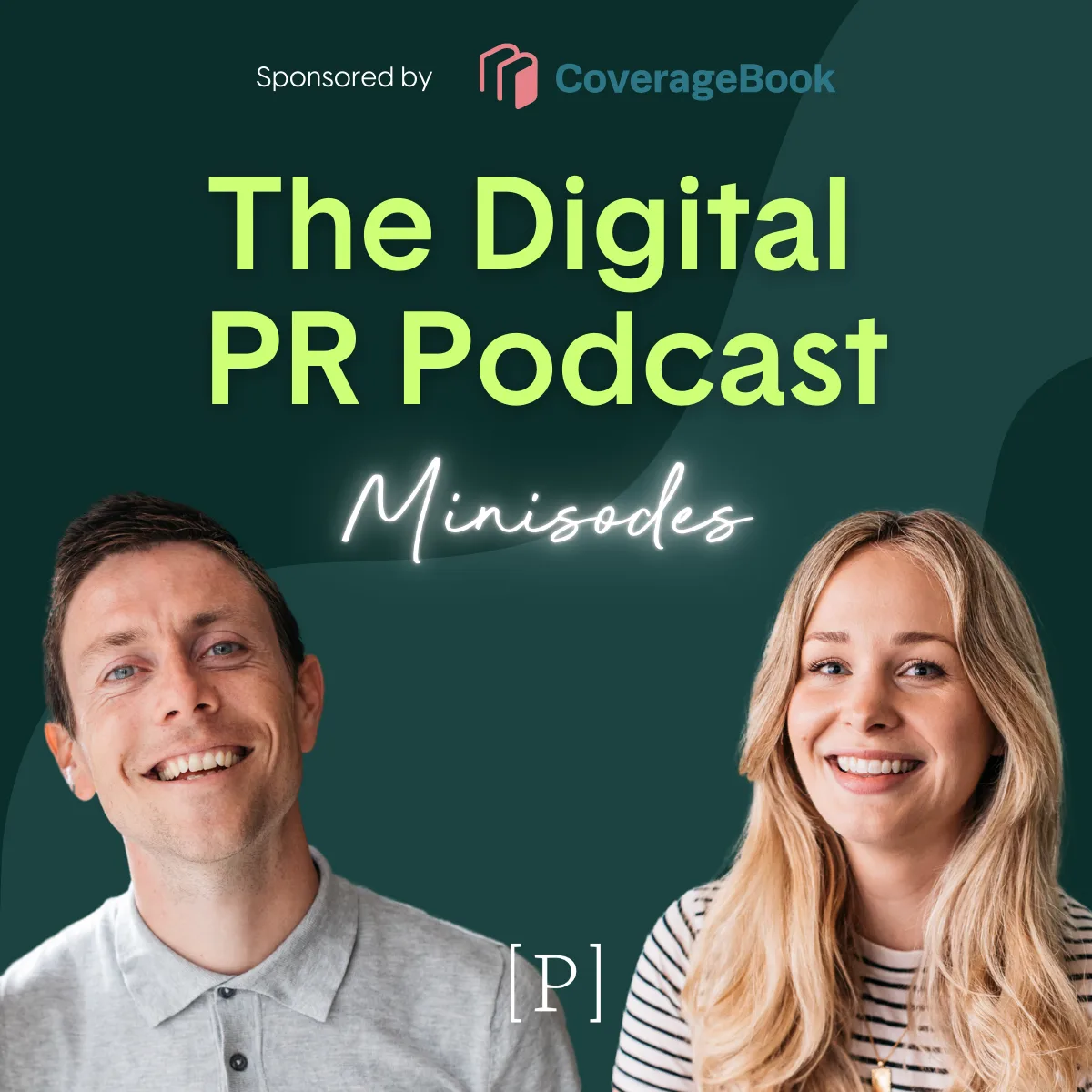
In this episode of the Digital PR Podcast, we had the pleasure of speaking with Maddie Davis, one of our talented PR managers at Propellernet. Maddie shared her journey into digital PR, highlighting her background in journalism and her transition into the agency world. We delved into the concept of finding your niche in digital PR, discussing how many small businesses mistakenly believe that PR is only for large brands. Maddie emphasised that any business, regardless of size, can effectively utilise PR to tap into their specific expertise and industry insights.
Maddy shared some fascinating examples of niche campaigns she has worked on, including a particularly memorable one for Rated People around pancake day. This campaign cleverly utilised plumbing expertise to warn consumers about the dangers of pouring pancake mixture down the drain, showcasing how niche knowledge can lead to impactful stories. We also explored the importance of curiosity and continuous questioning when working with clients to uncover unique angles for PR campaigns. Maddy provided valuable advice on mapping out a client’s space and identifying various areas where they can position themselves as experts.
Have a listen or read the full AI transcript below.
Lousie Parker:
Hi, it’s Louise here from the Digital PR Podcast. We have something new for you this season, not just a new season of podcast episodes, but mini episodes as well. The guests are all from our very own Digital PR team at Propellernet, and we’re just going to have quick little chats about the topics that are interesting us at the moment. Hope you enjoy.
Steve Baker:
We’re joined today by the wonderful Maddie Davis, one of our PR managers at Propellernet, who’s going to be talking to us about finding your niche. Maddie, welcome. Thanks for joining us.
Maddie Davis:
Hello. Thanks for having me.
Steve Baker:
So let’s start with an intro to yourself, your career. How do you find yourself in this spot at this particular time?
Maddie Davis:
Good question. So I’ve been with Propellernet for over two years, currently a digital PR manager, joined as an exec. Prior to that, I was actually working at a different agency, and I fell into that from journalism. So I was working in a variety of different roles, mostly like lifestyle journalism, and then on breaking news desks for a little bit as well. And when I was there, I started getting like really cool campaigns through. That was at the time when like, the infographics were kind of rife in digital PR. So that’s where I was kind of receiving all the time. But there’s so many cool things that I remember thinking I was on the wrong side of the job. And that’s kind of how I fell into digital PR.
Steve Baker:
There you go. And it is very much to our benefit because what a pleasure it is to have you at Propellernet and to be speaking to you today to learn about finding your niche. So let’s kick off with hopefully a fairly simple question. But for our listener’s benefit, what do we mean or what do you mean when we use the word niche in relation to digital PR? How would you summarise it?
Maddie Davis:
Yeah, I think it’s an interesting one when it comes to a niche in PR, because I think it’s a really big misunderstanding that, like many small businesses believe that PR is something that they can’t do, like it’s a service that is just large brands, or like, kind of the top dogs in their industry. But actually, like, that’s not really the case. Like if your business, it doesn’t have to be one of these big brands, that’s a household name to everybody, or globally renowned, it can be something, any kind of brand from any industry, as long as they use PR effectively, this is how they can really tap into their niche. So I would define a niche in PR as if you’re an expert in your sector, no matter how specific that sector is. So whether it’s like finance, or if you’re in real estate, your expertise can actually be the bedrock for an amazing digital PR campaign, story, press office, whatever kind of activity it is that you’re doing for your client. So that would be like sharing insights into how world events have impacted your industry. I think we saw a lot of it in lockdown, a lot of like fintech companies in particular saying that they seem like kind of a boom in the use of their products. I imagine Zoom was one of them where suddenly everybody’s using Zoom. So if your sector is kind of affected by anything that’s in the news, and you can tap into that by pushing yourself out there as the spokesperson for that very specific niche.
Steve Baker:
Give us some examples of niche campaigns or stories that you’ve worked on, like any particular favourites. I’m really intrigued as to how you answer this, actually, because it will remind me of all the wonderful things you’ve worked on. But yeah, any examples?
Maddie Davis:
Yeah, I think I’m quite lucky. As you know, Steve, I work on a variety of clients at Propellernet. I think one of my favourites, though, will always be the Pancake Day reactive story that we did for Rated People. So Rated People are a ‘find a tradesperson’ platform based in the UK, which like some clients, if you’ve got a very niche client, when you say the actual what they do, or the kind of industry they play in, you might think that’s very just set in stone of what they do. So you might think it’s quite hard to come up with ideas and do PR stories for them. But when you actually nail down like all the things that you can do to talk about tradespeople and home and property and trends and all the aspects of life that you actually need a tradesperson, there’s so much more that you can do with it. So we have a lot of fun on Rated People. I think it’s fair to say a lot of fun. And yeah, my favourite niche that we’ve done as a reactive story was around pancake day, which I’m sure you remember, because everybody’s going crazy about it on our Slack channel. But it was essentially we went to the plumbing expert and spokesperson at Rated People and just kind of talking about what kind of things people can expect when cooking with flour and oil and pancake day. And is there anything that we can talk about around this? And landed on the fact that actually, it’s a very common thing for people to pour mixture away. So it’s a great opportunity to pull on the expertise of plumbers, and say the dangers of pouring away pancake mixture, and also how much it could cost to fix the damage that is caused. So that’s extremely niche, and something that you could only do with plumbers. Do you know what I mean? You couldn’t really pull anybody else in to do that. So I think that will be one of my favourites that I’ve worked on.
Steve Baker:
Yeah, so I remember that one well, because I actually remember I was on paternity leave when that story came out. And I actually spotted that just in the news, which shows PR works. And it’s useful as well, because you’re right, that expertise could only come from a plumber. And I was planning on making pancakes. And I remember seeing the story, not knowing that we’d done it. So I was off work and going, Oh, that’s the kind of thing I do. I would pour pancake batter away. So I better, I better not do that. And you touched on something else that I just wanted to wanted to ask you about, because you talked about how you extracted that information and came up with the idea, because a lot of these niches, these people that have expertise in certain industries, it’s the kind of thing we’re not going to know about. So is it just a case of being curious, asking as many questions as possible to extract the right kind of info for stories, ideas, or do you go about in another way?
Maddie Davis:
Yeah, I definitely think that part of it is. So for most agencies, I imagine we have an onboarding process, we get to know the client, and you get to know the things they want to talk about and the publications they want to get coverage in, which is great. But I think once you’ve got that, it’s very easy to fall into a trap of being like, I know the client now. So we know this works, we know that I doing that. So we’re going to do that continually because it works. Yeah. But I think it’s so important as well to keep asking, well, what other areas can they play into? What other expertise they have that we haven’t even looked at yet? And just constantly trying to find ways that you can position them in these different niches as well. And if they are the expert voice, and they can provide expertise, and it’s relevant to them, then there’s no reason why it won’t work and why it won’t be relevant when a journalist sees Rated People, plumbers commenting on the dangers of pouring pancake mixture down the drain. So yeah, it’s definitely that. And it’s, you know, it’s a team effort, very much. Somebody will spark some idea of talking about pancake day, much like you said, thinking about, oh, that’s definitely something I would do is pour pancake mixture down. So we asked people in the PR team, is this something that everybody does? Or is this just because somebody did say in the PR team, like, who on earth has some leftover? Like, why are you pouring any away? So that was a bit of a red flag. But once you soundboard the idea as well, and realise, actually, this is something that people resonate with, that was another indication, I think that, okay, this has legs in it, because it works for press, as well as consumers who’ve been reading it.
Steve Baker:
I was gonna ask you, why do you think it was so effective? Or why do you think tapping into a niche is so effective in that way? Is it because the expertise is so focused? Was it for that one? Because it was topical? Like, what do you think?
Maddie Davis:
Yeah, I think for this one is definitely a few things. First one being we started pitching this about four days before pancake day. So I’ve seen some people talk about this on Twitter as well, if there’s like a hook that you’re using, how far in advance do you start pitching it? And for some stories, you might be pitching it, you know, like a month ahead of that hook. But for pancake day, we had a look on on Google search to see when people start searching for like recipes and what to do with pancake mixture. And it was peaking around that period. So we thought that’s a great time to start pitching. And we primarily focused on SEO writers to begin with knowing they would know when to write the story, what people will be searching for. So they knew that covering it would gain clicks. And that’s what a lot of journalists are going after at the moment is how much traffic they’re driving to the website. So that was definitely a large part. And I think the second part, completely what you said about it being very relevant to journalists knowing that consumers are doing this. This is something that they would do at home. But also we had the expertise there that were relevant to our client. It wasn’t as if we were positioning like an expert in something that had nothing to do with plumbing or the safety of your home. It was extremely relevant. And also, obviously the cost of living crisis is something you have to deal with quite delicately when you’re in PR and you don’t want to be using it for the sake of using it. But the plumber, when we spoke to him said, estimated how much it could cost in damages. And that was just in the press release. It wasn’t something that we really focused on. But then consumer and personal finance doing this started picking up on that one aspect of the press release as well. So I think because this was in February when cost of living was definitely one of the most talked about things for the first two quarters of the year anyway. I think it gained a lot more traction from that as well. So we had kind of multiple layers to that story, the warning, the expertise, the tips, and the financial aspect to it. And then on top of that, all of the verticals that we could go to with the story. So food press as well, like BBC Good Food was one that picked it up. And then news, Sky News covered it as well. So a real variety of people that we could outreach this story to. So it’s a very good mixture, no pun intended, of things that worked with pancake day.
Steve Baker:
You definitely intended that one. That’s on my hand. I love that. I love that. Yeah. Written on your hand as a note, must get that in. So tapping into the right expertise at the right time. But how did you, you mentioned there’s a lot of verticals to go to, which is obviously a very clever way of doing it and benefits us and the client hugely. But how did you pitch that in? Was it full on? Because I must admit, I genuinely don’t know for this one because I don’t work on that client. I wasn’t working at the time. Was it a full press release? Was it like a just some expert comment with a few stats around it? Like, how did you do it?
Maddie Davis:
Yeah, it was not like a full press release, like we’d usually do. It was more of an upfront pitch. So I remember the subject line was expert warns and then like of the dangers of pouring pancake mixture away. And we also then went with the financial subject line as well, which was around pouring pancake mixture down your drain could result in 300 pounds of damages after that was realised and personal finance would be interested in this story. And then we went into the Rated People plumbing experts have warned and gave the warning, the rough estimation of how much it would cost. And then we listed the tips of what the plumber recommended doing instead of pouring mixture away. And then we had a comment from somebody from the brand, which is Nat White from Rated People, as we often use her as the authoritative voice as brand. So that was used as well in a lot of coverage. So I think it was made up essentially about three or four parts, much smaller, condensed than a, you know, full press release. And, yeah, I think that especially going to SEO journalists, as well, who want kind of the headline of what’s trending and what they know people are searching for, and just snappy kind of takeaways from that. So that’s probably another reason why it worked. It wasn’t an over-complicated formula of what people had to do.
Steve Baker:
No simple, impactful, like genuine expertise. I guess you didn’t test it at any point, so you didn’t deliberately pour pancake mixture down your sink and then see how much it cost to fix, which would be going to the absolute nth degree.
Maddie Davis:
I’m quite thorough with my work, but I’m not that thorough.
Steve Baker:
No, totally fair, totally fair. Aside from the pancake story and stuff that maybe you’ve worked on, or maybe it is other stuff you’ve worked on, but have you seen any other kind of niche campaigns or stories that you think have been, you know, really effective in a similar way?
Maddie Davis:
Two come to mind and they’re more larger campaigns, bigger executions. The first one, annoyingly, it is a but it’s one that is talked about quite a lot still, even though it was done maybe three years ago now. And that’s the scrap car comparison rage yard. I think having a scrapping client, so many people would think like that is extremely niche, kind of like the definition of a niche is a scrappage system. So to be able to use that and use the current events that was taking out your anger of a dreadful year after lockdown and the government and many other things that were going on. And being able to take your anger out in a scrapyard is just like the perfect way that it completely defines I think PR and a niche PR. I think that was chef’s kiss. I wish I’d worked on it. But it’s before my time at Propellernet. So that’s a good one. It’s such a good one. And then the second one, I think we’ve all talked about this in Propellernet is the Habito, the road to completion story. Yeah.
Steve Baker:
Yeah.
Maddie Davis:
Love, love, love this story. So for context, Habito are designed so that your mortgage, home surveys and legal work are all hosted in one place. And their purpose is literally to make home buying as easy and enjoyable as possible. So anybody who knows and bought a house knows it can be very stressful and it can lead to arguments maybe with your partner when times are particularly stressful. And they just managed to really lean into that so well by creating the Road to Completion book. And this obviously the big execution because they actually created a book that was also paid with survey data that found that 1 in 10 couples say that getting a mortgage made their sex lives go like all together. And they had so many more survey like stats in there and kind of piggybacked on the idea of their interpretation of property porn as well, paired the two together and came up with this comic book that highlighted the added pressure and uncertainty caused by buying a home. I can’t remember the characters’ names in the book, but they went all out in showing just how much it impacts both the couple and how stressful it can be, and how that road to completion can be a little bit testing. Again, very niche, because it’s not as if they were an estate agent or anything trying to think of another kind of like real estate-based client. Like that one is quite niche in making the moving process simple. So very, very good one.
Steve Baker:
Another good example. I love that too. Really, really clever, clever use of the product, the expertise, the niche, sure. And finally, Maddy, what would we tap into your advice now? You’ve given some amazing examples and like an overview of how you’ve done it, how you do it. What would be your advice for someone, whether they’re new to the industry, established in the industry, what have you, looking to create kind of a niche campaign or story for a client? What are the starting points and where do you go?
Maddie Davis:
I think I’ve touched on it already a little bit. I think the number one thing that I still do, as I already said, is to sit down and really map out the space that your client has to play in. So rather than just seeing like Rated People, for example, rather than just seeing it as a platform for people to find a tradesperson, being able to say, well, what else comes from that? So from that comes home improvement or DIY. There also comes like on the moments where you need a tradesperson, like what’s happened? Is it DIY gone wrong? Have you tried a TikTok trend that didn’t go to plan? There’s so many areas where so many different tradespeople can have an impact on your life as well. So I think by mapping all of that out, and I can’t remember who said this in Propellernet, but somebody very wise, I can’t remember who said to not think that’s probably you, Steve, the wisest person in, you’re gonna cut that part. Rather than thinking outside of the box, like think of it like a mind map. So rather than thinking, beyond your client, because we still need it to be really relevant. So rather than thinking beyond it, just thinking as a mind map, what is still attached to, but not too far removed that you’re then not a relevant voice of authority. And I think by having that just kind of laid out in front of you, or if it’s on like your Slack notes or anything, you can always just come back to it when it comes to ideas or if there’s then something reactive and you realise that’s on your list of areas that you can talk about with your client, you’re in a really good position to kind of jump onto that and go from there. I think the other thing that I’d suggest just from past experience and kind of from learning is it’s really useful on onboarding with a client to get quotes signed off from them ahead of time and just saving them down because clients are busy. And when it comes to really needing to turn it around, especially if it’s like a reactive piece, if you are then like 36 hours late to going out with it, the story’s already passed. So if you’ve got to stay down, it’s so handy then just knowing that the client has already signed it off. You can add the colour that you need, all of the PR stuff that you need to it, and then you can go out and there’s no kind of waiting around and then being really annoyed that you missed the boat.
Steve Baker:
Very sound advice, Maddy, because I think that’s quite an undervalued thing, particularly at the start of a relationship where you’re like, okay, let’s really think about exactly what we can talk about that is different from other people, where does our real expertise lie, but also getting some pre-approved comment kind of signed off and ready to go. So you’re ready to take advantage of things that are, well, it moves fast, doesn’t it, in our industry? It does move fast. You’ve got to be quick. Maddy, thank you so much for joining us and for your expertise, your knowledge, your great pun and everything on finding your niche. It’s been a pleasure. Thank you.
Maddie Davis:
Thank you. Sorry. Thank you.
Steve Baker:
It’s okay to sign off in Welsh. You are Welsh. It’s a beautiful sign off. Oh, every time. Thanks, Maddy.
Maddie Davis:
Thanks. Bye.
